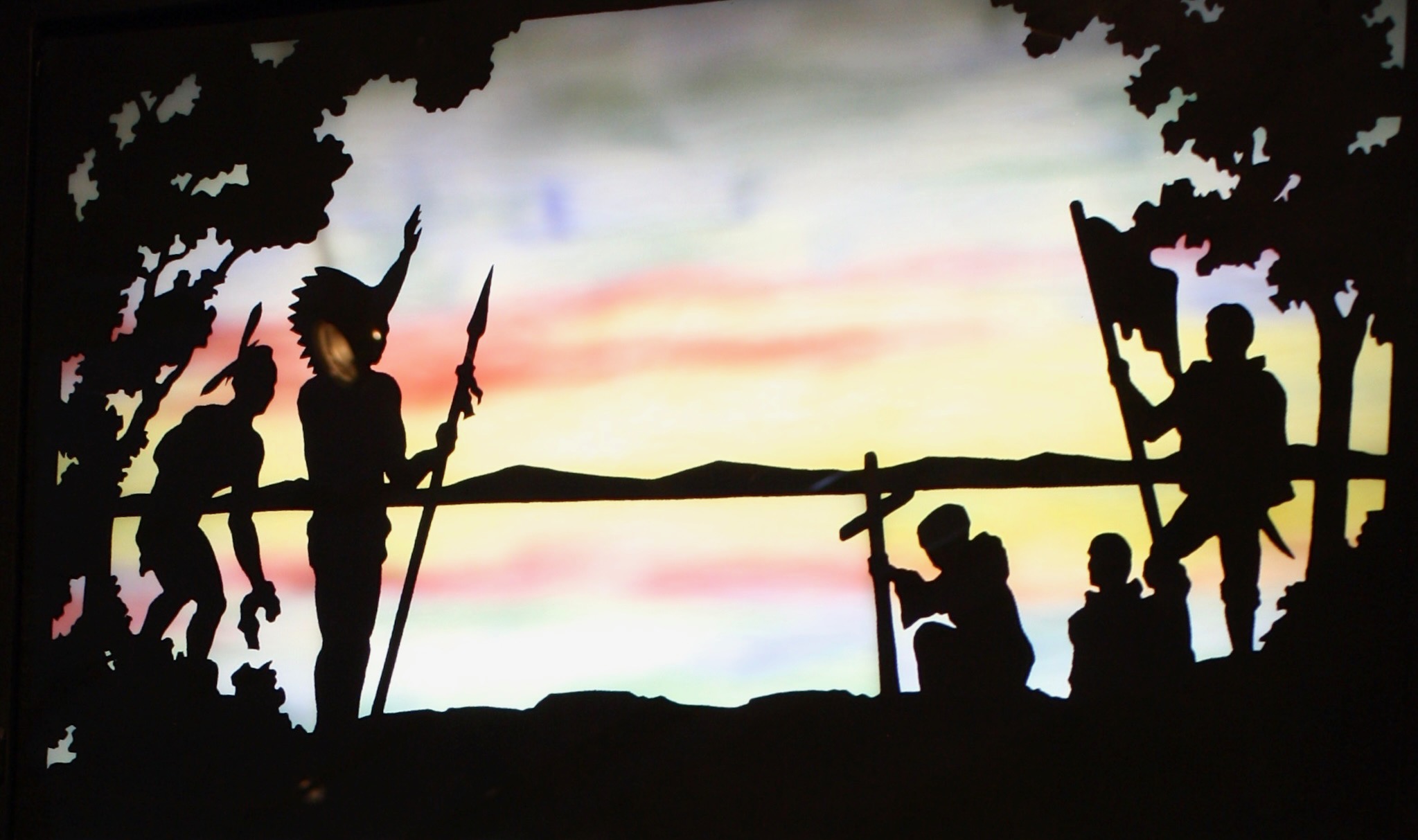Effectuating Renunciation: An International Effort to Provide a Pathway to Repudiate the Doctrine of Discovery
I. Introduction
On September 8, 2021 the International Union for Conservation of Nature (IUCN) voted to renounce the Doctrine of Discovery (DoD) by adopting Motion 048, now Resolution 119 “Renunciation of the Doctrine of Discovery to Rediscover care for Mother Earth.”1 The IUCN is an international conservation organization, formed in 1948 to “provide a neutral space in which governments, NGOs [Non-government organizations], scientists, businesses, local communities, indigenous peoples’ organisations and others can work together to solve environmental challenges and achieve sustainable development.”2 IUCN’s membership comprises more than 1,400 members over 160 countries.3 Like other international organizations, the IUCN serves to gather, facilitate, and stabilize norms between its member nations, specifically in the sphere of nature conservation and biodiversity. The IUCN, exists an international organization separate from the United Nations (UN). However, the IUCN is only one of two environmental organizations that have observer status, which provides the organization with critical opportunities to engage with UN decision making.3
Apart from its significance in conserving nature, the IUCN’s rejection of the DoD makes the organization among the first and largest secular organization to reject the DoD.4 Consequently, the IUCN is tasked with establishing a framework of repudiation in this space. With the support of its members, and in accordance with the IUCN Resolution 119, one anticipated pathway is for the IUCN to build a Truth and Reconciliation Working Group to repudiate the DoD and rediscover care for Mother Earth.
II. DoD as International Law and Policy
The DoD is first and foremost a product of globalization, and therefore is firmly a doctrine of international law and policy. The doctrine established early norms for how Christians, who were organized under religious and a secular banners, colonized non-Christian places and peoples. The Church relied on the concept of Natural Law which provided non-Christians a qualified sovereignty, subject to the Church’s own spiritual directives.5 The Church employed this principle through its influence over monarchs who sought governing and colonizing authority from the Church.6
Eventually, the Catholic monarchies of the Spanish and Portuguese Empires relied on the DoD as expressed through the Inter Caetera for their colonizing efforts. As a Papal directive, the DoD facilitated the colonization of non-Christian lands amongst the Catholic empires. Consequently, the principle evolved as colonizing empires applied the DoD. Omitted Catholic empires of England and France employed their own interpretation of the Papal directive so that they too could colonize lands “that had not yet been discovered by any other Christian prince.”7 Eventually, independent secular nations starting with the United States in the 18th and 19th centuries adopted the DoD to justify political and legal supremacy over the colonized space.8
For centuries, influential institutions such as the Church and secular governments have implemented the DoD as an international principle that established colonizing norms from the top-down. Thus, it only makes sense that a critical place for repudiation are these same institutions. An institutional approach has already been employed by those who have done tremendous work on DoD’s repudiation. For example, many faith communities have already repudiated the DoD such as the Episcopal Church, Presbyterian Church, and several Catholic organizations.9 As a religious principle, it is important for religious institutions to repudiate the doctrine, especially the Church to rescind the Papal Bulls that are currently active as Papal doctrine. Calls for the religious institutional repudiation has been at the forefront of many DoD repudiation movements.10
However, since the DoD is also a principle that is entrenched in secular society, it is also necessary for non-religious political bodies whose legal systems rely on the DoD to renounce the doctrine. As a result, the IUCN’s DoD renunciation should be seen as a challenge to the secular institutions that employ and perpetuate the doctrine. However, to understand where the IUCN is situated in this process, one must look to the present state of international law beyond the once omnipresent Church.
While international policy in the past has been established by the Church and independent governments that negotiated trade and military agreements, since the end of the First World War and the establishment of the League of Nations, international organizations have served as the primary platform to establish globalized norms on global security, trade, the environment, and many other transboundary issues. The United Nations, the World Trade Organization, and the IUCN are all examples of such international organizations. These international organizations exist to organize a set of norms on human rights standards, trade practices, and biodiversity.
III. IUCN Repudiation
Today’s environmental issues provide opportunities to concentrate on significant, but often overlooked injustices. The rise in global temperatures, increase in natural disasters and the consequences on nature and people attracts close scrutiny. This is the primary theory behind the proposal for the IUCN to renounce the DoD, to repudiate a principle that is incompatible with the pressing need to conserve nature. If the IUCN as “the global authority on the status of the natural world and the measures needed to safeguard it” adopted a resolution renouncing the DoD, then it would be the first time the principle would be rejected by an international authority in the context of one of the most critical issues of today, climate change.11
The UN’s adoption of the UN Declaration on the Rights of Indigenous Peoples (UNDRIP) in 2007 was a significant moment for the international recognition of Indigenous Peoples’ rights. In the original vote, 143 member nations voted in favor of this document that supported the establishment of norms as it concerns UN member nations and Indigenous Peoples. However, UNDRIP neglected to explicitly repudiate the DoD and only made reference to colonization once in the 46-Article resolution. While falling short of an international adoption of the DoDs renunciation, it signaled that renunciation of the DoD may be possible within international organizations. Resultingly, an initiative to renounce the DoD at the IUCN started almost immediately.
The initiative for IUCN renunciation was first started by Professor Nicholas Robinson of the Global Center for Environmental Legal Studies (GCELS) at the Elisabeth Haub School of Law at Pace University. As a voting member of IUCN, GCELS was able to draft, propose, and vote on motions. In 2008, the IUCN held its first WCC since the UN’s adoption of UNDRIP in 2007. At this WCC the IUCN officially endorsed UNDRIP and as a result “regularly monitors and reports on its contributions to the implementation of the Declaration.”12 In an attempt to build on the success of UNDRIP, GCELS submitted a motion to renounce the DoD, which was then rejected by the IUCN Council’s Resolutions Working Group, claiming that DoD’s renunciation was irrelevant to IUCN’s mission.13
At the following WCC in 2012, the only mention of the DoD appeared in a preamble of a separate motion that sought to better implement UNDRIP throughout IUCN activities.14 The preambular language suggested that this motion pass in the context of the United Nations Permanent Forum on Indigenous Issues’ finding of no credibility in the DoD.15 Four years later, at the 2016 WCC, IUCN again did not bring a motion to renounce the DoD to vote. However, the IUCN did adopt a motion which granted Indigenous Peoples’ Organizations (IPO) member voting status.16 This was significant as the 2020 WCC would be the first time IPOs could draft, propose, and vote on IUCN policy.
Resultingly, leading up to the 2020 IUCN WCC, GCELS drafted a motion similar to the one proposed in 2008. Additionally, the motion gained several co-sponsors including Kuaʻāina Ulu ʻAuamo (KUA), an IPO, and the Environmental Law Program at the William S. Richardson School of Law (Richardson Law).17 Together, GCELS, KUA, and Richardson Law proposed Motion 048 and negotiated its text before it was brought to a vote before the IUCN membership. In the third sitting of the Members’ Assembly, the IUCN voted to adopt Motion 048 as Resolution 119, “Renunciation of the Doctrine of Discovery to Rediscover care for Mother Earth.”18
In Resolution 119, the IUCN expressly renounces the DoD in all its manifestations, requests the establishment of a truth and reconciliation working group to develop best practices of environmental co-stewardship in the context of DoD renunciation, urges all states to embrace DoD repudiation, and invites religious institutions to repeal DoD proclamations.19 Simply, Resolution 119, has accomplished what other secular international organizations have been slow to achieve, the repudiation of the DoD. As such, the IUCN has become the first secular international organization to establish the DoD’s repudiation as a global norm.
IV. Repudiation and Reconciliation
Repudiation of the DoD through an IUCN resolution, however, is of course meaningless without action. The IUCN Council now has the responsibility of implementing Resolution 119 in its practices, further defining the new norm of DoD repudiation in the secular space. Likewise it is the responsibility of the resolution’s sponsors to ensure that the IUCN Council act. The anticipated method of action by the co-sponsors is through the establishment of a truth and reconciliation working group. The main purpose of a truth and reconciliation working group is to provide a space to investigate, record, acknowledge, and allocate responsibility for injustices.20
An establishment of such a group would ensure that the pronouncement of repudiation is followed by action. However, the establishment of truth and reconciliation commissions are far from uniform, each must be created and implemented by the affected parties. The co-sponsors of the resolution hope to continue working with IPOs within the IUCN and other Indigenous Peoples to build the structure and processes of the working group. There is no preestablished formula or guidelines that yet direct this initiative. There are some examples that provide insight to the ones involved with creating the working group such as the Truth and Reconciliation Commission of Canada.21
The IUCN’s passage of Resolution 119 is not the end of a decades-long attempt to repudiate the DoD. As the co-sponsors and the DoD affected communities come together to establish a truth and reconciliation working group, the concepts of repudiation and reconciliation will continue to change. As a result, the best pathway forward is to begin a process in the creation of a space where the truth can be uncovered, repudiation of injustices can begin, and reconciliation can commence.
Footnotes
-
IUCN, List of Motions, https://www.iucncongress2020.org/assembly/motions (last visited Dec. 30, 2022). ↩
-
IUCN, About IUCN, https://www.iucn.org/about-iucn (last visited Dec. 30, 2022). ↩
-
Indigenous Values Initiative, Repudiations by Faith Based Communities, Doctrine of Discovery Project (30 July 2018), https://doctrineofdiscovery.org/faith-communities/. ↩
-
Robert J. Miller, et al., Discovering Indigenous Lands: The Doctrine of Discovery in the English Colonies 9-15 (2010). ↩
-
See id. ↩
-
Id. at 18. ↩
-
See id. at 66-88. ↩
-
Indigenous Values Initiative, supra note 2. ↩
-
Stephanie Taylor, Papal Apology Sparks Calls to Renounce 500-Year-Old Doctrine of Discovery, Global News (July 30, 2022, 7:54 AM), https://globalnews.ca/news/9026698/papal-apology-renounce-doctrine-of-discovery/. ↩
-
UN Environment Programme, The International Union for Conservation of Nature, https://www.unep.org/explore-topics/oceans-seas/what-we-do/working-regional-seas/partners/international-union#:~:text=IUCN%20is%20the%20global%20authority,management%2C%20and%20education%20and%20communication (last visited Dec. 30, 2022). ↩
-
IUCN, Indigenous Peoples, https://www.iucn.org/our-work/topic/indigenous-peoples (last visited Dec. 30, 2022). ↩
-
See Nicholas A. Robinson et al., Renouncing the “Doctrine of Discovery” at The IUCN World Conservation Congress, 3, https://law.pace.edu/sites/default/files/Doctrine_of_Discovery.pdf. ↩
-
IUCN, Resolutions and Recommendations: World Conservation Congress Jeju, Republic of Korea 6-15 September 2012, 139 (2012), https://2012congress.iucn.org/cmsdata.iucn.org.iucn.vm.iway.ch/downloads/resolutions_and_recommendations_2012.pdf. ↩
-
Id. ↩
-
IUCN, IUCN Resolutions, Recommendations and other Decisions: World Conservation Congress Honolulu, Hawai’i, United States of America 6-10 September 2016, 22 (2016) https://portals.iucn.org/library/sites/library/files/documents/IUCN-WCC-6th-005.pdf. ↩
-
See Robinson, supra note 14, at 2. ↩
-
IUCN, List of Motions, https://www.iucncongress2020.org/assembly/motions (last visited Dec. 30, 2022). ↩
-
IUCN, WCC-2020-Res-119-EN Renunciation of the Doctrine of Discovery to Rediscover care for Mother Earth, https://portals.iucn.org/library/sites/library/files/resrecfiles/WCC_2020_RES_119_EN.pdf. ↩
-
See MICHAEL LUND, Reckoning for Past Wrongs: Truth Commissions and War Crimes Tribunals, in DEMOCRACY AND DEEP-ROOTED CONFLICT: OPTIONS FOR NEGOTIATORS, 282 (1998) https://www.idea.int/sites/default/files/publications/democracy-and-deep-rooted-conflict.pdf. ↩
-
See National Centre for Truth and Reconciliation, Truth and Reconciliation Commission of Canada, https://nctr.ca/about/history-of-the-trc/truth-and-reconciliation-commission-of-canada/ (last visited Jan. 29, 2023). ↩
SUGGESTED CITATION
Christopher Sudol, "Effectuating Renunciation: An International Effort to Provide a Pathway to Repudiate the Doctrine of Discovery," Doctrine of Discovery Project (10 March 2023), https://doctrineofdiscovery.org/blog/effectuating-renunciation-IUCN/.
Donate today!
Open Access educational resources cost money to produce. Please join the growing number of people supporting The Doctrine of Discovery so we can sustain this work. Please give today.



